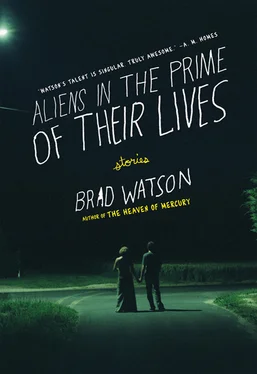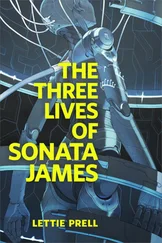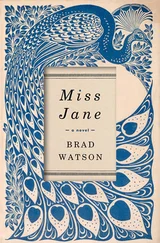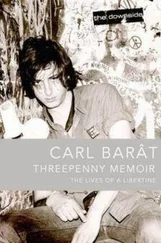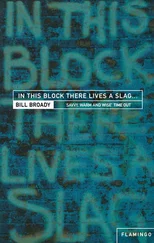THEY’D MADE HIM DECIDE what to do, and he’d decided to save her more risk. She made him tell her about it, next day. He stood beside her hospital bed, hands jammed into the pockets of his jeans, hair lopsided from sleep.
“It was getting a little dangerous for you,” he said. “It was either pull her out somehow or cut you, and they asked me what we wanted to do. You were kind of out of it.
“I understood what they meant,” he said. “You were having some problems. It was dangerous. I said to go ahead and pull her out, to get it over with as quickly as they could.
“I was afraid for you,” he said. “Something in the doctors’ voices made me afraid. I told them to get it over with and to hurry. So they did.”
What he was saying moved through her like settling, spreading fluid.
“I don’t want to dwell on it,” Tex said after a moment. He sounded angry, as if he were angry at her for wanting to know. “There wasn’t anything they could do. She was already gone and it was an emergency. There was nothing anyone could do about that.”
He stood there looking at the sheet beside her as if determined to see something in it, words printed there in invisible ink.
“She broke,” she whispered. Her throat swollen and too tight to speak.
He looked at her, unfocused. She understood he could not comprehend what he’d seen.
“It doesn’t mean anything,” he said. “She was already gone.”
“It means something,” she said. “It means the world is a horrible place, where things like that can happen.”
They went home. They arranged the funeral and attended it with his parents and her father, who came with her two sisters. No one had very much to say and everyone went home that afternoon.
In the house over the next few weeks they seemed to walk through one another like shadows. One night she woke up from a dream so far from her own life she couldn’t shake it and didn’t know herself or who slept beside her. A long moment of terror before she returned to herself with dizzying speed. She lay awake watching him as calm was restored to her bloodstream, quiet to her inner ear. Her heartbeat made an aspirant sound in her chest. She gently tugged the covers from beneath his arms. Their skins were a pale, granular gray in the bedroom’s dim moonlight, which failed in silent moments as if an opaque eyelid were being lowered over its surface. She gathered his image to her mind swiftly, as if to save it from oblivion. But he seemed a collection of parts linked by shadows in the creases of his joints, pieces of a man put together in a dream, escaping her memory more swiftly than she could gather it in. In a moment he would be gone.
JULIE VERNER AND MAY MILLER had lost theirs, too, at about the same time. Miscarriages. They were all in their mid-to late thirties, friends for close to ten years now, ever since they were young and happily childless.
It was May’s first, but Julie and Beth had each lost two, so they were like a club, with a certain cursed and morbid exclusivity. Their friends with children drew away, or they drew away from the friends. They speculated about what it was they may have done that made them all prone to lose babies, and came up with nothing much. They hadn’t smoked or drunk alcohol or even fought with their husbands much while pregnant. They’d had good obstetricians. They hadn’t even drunk the local water, just in case. It seemed like plain bad luck, or bad genes.
On Friday nights the three of them went out to drink at the student bars near the college. They smoked, what the hell. Julie smoked now anyway but Beth and May smoked only on Fridays, in the bars. They smoked self-consciously, like people in the movies. Saturdays, they slept in and their husbands went golfing or fishing or hunting. Tex was purely the fisherman, and he would rise before dawn and go to the quiet, still lakes in the piney woods, where he tossed fluke-tailed artificial worms toward largemouth bass. When he returned in the afternoons he cleaned his catch on a little table beneath the pecan tree out back. He kept only those yearlings the perfect size for pan-frying in butter and garlic. On days he didn’t fish he sometimes practiced his casting in the backyard, tossing lures with the barbs removed from their hooks toward an orthopedic donut pillow Beth had bought and used for postpartum hemorrhoids.
On the mornings he went fishing Beth rose late into a house as empty and quiet as a tomb. Despite the quiet she sometimes put in earplugs and moved around the house listening to nothing but the inner sounds of her own breathing and pulse. It was like being a ghost. She liked the idea of the houses we live in becoming our tombs. She said to the others, out at the bar:
“When we died they could just seal it off.”
Julie and May liked the idea.
“Like the pharaohs,” May said.
“Except I wouldn’t want to build a special house for it,” Beth said. “Just seal off the old one, it’ll be paid for.”
“Not mine,” May said. She tried to insert the end of a new cigarette into a cheap amber holder she’d bought at the convenience store, but dropped the cigarette onto the floor. She looked at the cigarette for a moment, then set the holder down on the table and pushed her hands into her hair and held her head there like that.
“And they shut up all your money in there, too,” Beth said. “Put it all in a sack or something, so you’ll have plenty in the afterlife, and they’d have to put some sandwiches in there. Egg salad.”
“And your car,” Julie said, “and rubbers, big ones. Nothing but the big hogs for me in the afterlife.”
“Is it heaven,” May said, “if you still have to use rubbers?”
“Camel,” Beth said.
“Lucky,” May said.
Julie doled them out. When they were in the bars, when they smoked, it was nonfiltered Camels and Luckies.
THEY WENT TO THE Chukker and listened to a samba band, the one with the high-voiced French singer. Beth danced with a student whose stiff hair stood like brown pampas grass above a headband, shaved below. Then a tall, lithe woman she knew only as Gazella cut in and held her about the waist as they danced, staring into her eyes.
“What’s your name?”
“Beth.”
Gazella said nothing else, but gazed frankly at her without flirtation or any other emotion Beth could identify, just gazing at her. Beth, unable to avert her own gaze, felt as exposed and transparent as a glass jar of emotional turmoil, as if the roil and color of it were being divined by this strange woman. Then the song stopped. Gazella kissed her on the cheek, and went back to the bar. Watching her, Beth knew only one thing: she wished she looked like Gazella, a nickname bestowed because the woman was so lithe, with a long neck and an animal’s dispassionate intelligence in her eyes. Powerful slim hips that rolled when she moved across the room. And like an animal, she seemed entirely self-reliant. Didn’t need anyone but herself.
She looked around. The pampas grass boy was dancing with someone else now, a girl wearing a crew cut and black-rimmed eyeglasses with lenses the size and shape of almonds. Beth went back to the table. Julie and May raised their eyebrows, moved them like a comedy team, in sync, toward Gazella. May had the cigarette holder, a Lucky burning at its end, clamped in her bared teeth. Then the two of them said the name, Gazella, in unison, and grabbed each other by the arm, laughing.
Beth said, “I was just wondering when was the last time y’all fucked your husbands?” May and Julie frowned in mock thought. May pulled out her checkbook and they consulted the little calendars on the back of the register. “There, then,” Julie said, circling a date with her pen.
May spat a mouthful of beer onto the floor and shouted, “That’s 1997! A fucking year!”
Читать дальше
